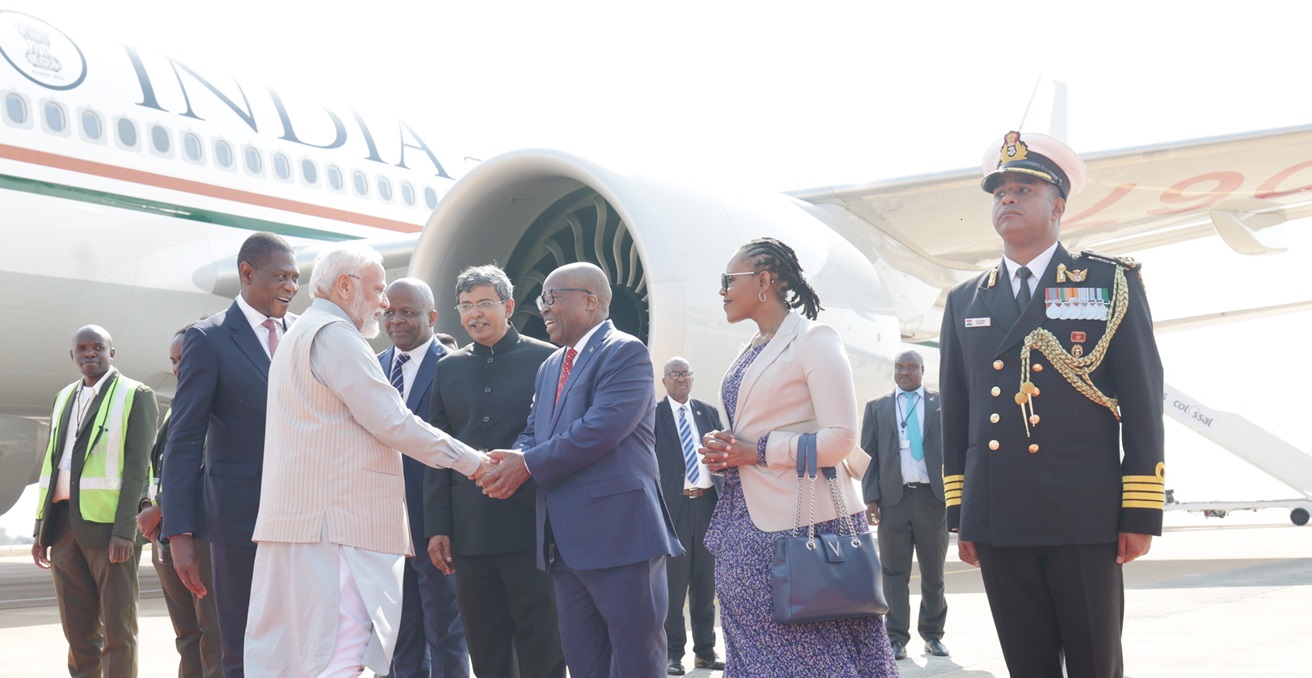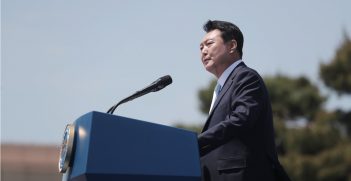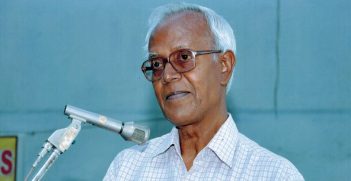India's Africa Policy and Drivers of Diplomacy in the Global South

India’s diplomatic, economic, and cultural engagements with Africa have grown substantially in the last three decades, though the drivers of the country’s Africa policy have remained the same. African support will be needed to fuel India’s economy and consolidate its position as a leading power in the Global South.
In the immediate aftermath of independence in 1947, India’s foreign policy primarily focused on managing the retreat of colonialism within the emerging bipolar world order. In 1955, leaders from newly independent Asian and African nations convened at Bandung in Indonesia to negotiate their interests in the post-WWII order. Their objective was to address the issues of underdevelopment and inequalities in the young post-colonial states, fostering frameworks for economic and diplomatic exchange. Initiatives for scientific, cultural, and political cooperation between these states, including India and African nations, were developed from the mid-1950s. The United Nations recognised these arrangements as South-South Cooperation in 1978, representing an effective modality of international collaboration among countries of the then “Third World.”
India has consistently positioned itself as a moral leader in the Global South, advocating for post-colonial nations at similar developmental stages. India’s first prime minister, Jawaharlal Nehru, played a key role in promoting the Non-Aligned Movement during the era of divisive Cold War politics. India strongly condemned apartheid South Africa and remained committed to dismantling white minority regimes. In the 1990s, India’s geopolitical and economic ambitions shifted with the collapse of the Soviet Union, the onset of a multipolar world, the US-led “war on terror,” and the rise of China. Joining the nuclear club in 1998 enhanced India’s negotiating influence on the global stage.
Support from African states has always been crucial for India for realising its geopolitical and economic ambitions. The India-Africa Forum Summits of 2008, 2011, and 2015, justified India’s Africa outreach in terms of the country’s economic interests rather than southern solidarity. New Delhi’s Africa engagements continue to be informed by five crucial factors (addressed below), and exhibit a great deal of continuity from the Nehruvian era (1947-64) to that of the current administration led by Prime Minister Narendra Modi (2014- present).
Reformed Multilateralism: Since the 1950s, India has argued for the reform of multilateral institutions to include voices from the Global South. India’s diplomacy in Africa is driven by its quest for a permanent seat at the United Nations Security Council. Since the 1990s, India has challenged the WTO’s intellectual property rules on generic drugs, to enable production of life-saving medication at reduced costs, such as HIV/ AIDS, and more recently for vaccines during the COVID-19 pandemic with the support of South Africa. In 2023, at the eighteenth G20 summit (comprised of nineteen countries and the European Union), Modi included the African Union as a permanent member of the G20, amplifying Africa’s voice on the global stage.
Alternative Financial Architecture: India collaborates with African nations to develop alternatives to the existing global financial architecture as still defined by the Washington Consensus-era policies. The BRICS (Brazil-Russia-India-China-South Africa) grouping, founded in 2009, symbolises this effort to challenge northern hegemony in global governance. As of 2024, five more countries, including two of Africa’s fastest growing economies Egypt and Ethiopia, were admitted into the bloc which now represents 45 percent of the world’s population and 28 percent of the global GDP. India’s push for de-dollarisation in international trade and support for the BRICS’s New Development Bank reflects its strategy to delink global trade from the dollar and promote payments in local currencies, as well as design alternatives to the International Monetary Fund and World Bank.
Economic Diplomacy, New Markets: After economic liberalisation in 1991, India’s outreach to Africa became synonymous with economic diplomacy. India has financed development projects across various sectors in Africa, promoting infrastructure, agriculture, food processing, health, irrigation, solar energy, and manufacturing. Main funding modalities include the Export-Import bank’s concessional Lines of Credit and Buyers’ Credit. These funding modalities are meant to be utilised by Indian firms to enter and establish themselves in African markets, and for Indian service providers to develop larger markets in Africa. Private sector-led bodies like the Confederation of Indian Industry have actively connected potential Indian and African business partners, and have held at least eighteen high-level meetings from 2005 to present.
Countering China: India has been vigilant about China’s increasing influence in Africa. India inaugurated the Indian Technical and Economic Cooperation Program, which trained many African students in a range of technical and scientific courses in 1964, soon after the disastrous border war with China. In response to China’s Belt and Road Initiative launched in 2013, which aims to develop Beijing-centric networks of connectivity, India introduced Project Mausam to revive India’s age-old maritime connectivity channels across the western Indian ocean. Additionally, it adopted “Security and Growth for All in the Region” (SAGAR) to develop strategic partnerships with island states such Mauritius and Seychelles. India’s membership of the recently-formed QUAD (with Australia, Japan, and the USA) is a further strategic move to counter China in the Indo-Pacific region.
In short, India asserts itself as a better development partner for Africa than China on account of its democratic institutions and economic model – the Mumbai consensus. This is characterised by decentralised governance, emphasis on private entrepreneurship, public-private partnerships, and low-cost innovations.
Climate Governance: India advocates the principle of “climate justice,” arguing against stringent climate targets for the Global South as they have not historically been responsible for the bulk of global emissions to date. The Common African Position supports India’s adherence to the principle of Common But Differentiated Responsibilities and Respective Capacities which allows nations to respond to global targets for decarbonisation, conservation, and energy transition based on their current developmental needs. Both India and African states advocate for more stringent emissions targets for industrialised nations and seek increased financial support for adaptation, mitigation, and energy transition at COP meetings. The International Solar Alliance, led by India, includes a third of its membership from African states, contributing to the clean energy transition. In the future, large emerging economies such as India may be able to trade carbon offsets and credits with African nations with smaller carbon footprints, as the climate emergency becomes more urgent.
Disclosure: Their recent work has been funded by the Research Council of Norway
Meera Venkatachalam is a Postdoctoral Fellow at the Centre for African Studies, University of Mumbai. She is the co-editor of ‘India’s Development Diplomacy and Soft Power in Africa’ (Boydell & Brewer, 2021).
Renu Modi is a Professor and former Director of the Centre for African Studies, at the University of Mumbai. She is the co-editor of India-Africa Partnerships for Food Security and Capacity Building: South-South Cooperation (Palgrave Macmillan, 2021).
This article is published under a Creative Commons License and may be republished with attribution.





